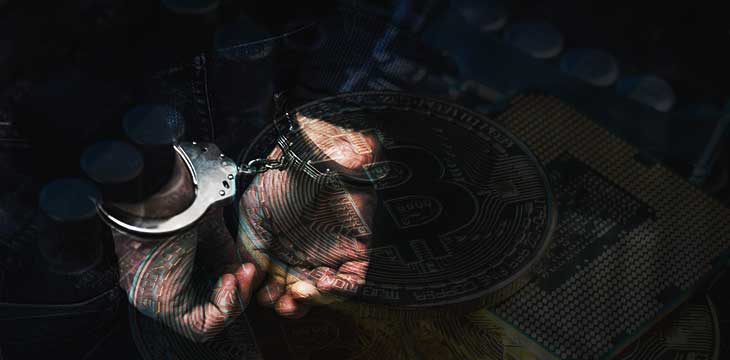|
Getting your Trinity Audio player ready...
|
Two men were arrested in Tokyo in connection with the hack of crypto exchange Coincheck, in which hackers stole some $534 million in digital currency.
The 2018 hack remains one of the largest in the sector, and had been traced back to hackers in Russia. Some 100 investigators from local law enforcement continue to work on the case, attempting to identify the alleged buyers of NEM stolen from the exchange.
The arrested men are accused of purchasing stolen NEM on the dark web, violating laws that were set up to tackle organized crime online, Jiji Press reported. After tracing the movement of some of the digital currency stolen from the exchange, investigators were led to a digital asset exchange which divulged information about the identities of those behind the wallets concerned.
The tokens were moved and exchanged for LTC and BTC respectively, spread across a total of 13,000 different wallets to obscure detection. While many exchanges have stepped up security in response to the Coincheck hack, it remains unclear whether the individuals were able to cash out the funds they are accused of stealing.
Investigations have now turned to individuals who may have purchased stolen coins, who could find themselves liable to charges of fencing, or reselling stolen goods. Particularly in the case of “transparency” coins like BTC, the lack of fungibility means users are at risk of being guilty of fencing unintentionally, which could see them brought within the regulatory net.
At the time, the hack sent Coincheck reeling, causing significant damage to the company and leaving exchange users significantly out of pocket. Revenues plummeted by 66% on the quarter, before the exchange was rescued by buyer Monex Group.
In May 2018, Coincheck announced it would no longer support digital currencies with privacy features, not resuming trading in NEM until November of that year.
In early 2019, Coincheck became one of a select number of Japanese firms to be granted a license by the country’s Financial Services Agency, allowing them to operate legally as an exchange in Japan.
The arrests will inspire confidence in the enforcement action, and the ability of authorities to identify the culprits, as well as those who may have been involved in covering for the scammers—intentionally or otherwise.

 02-19-2026
02-19-2026 




